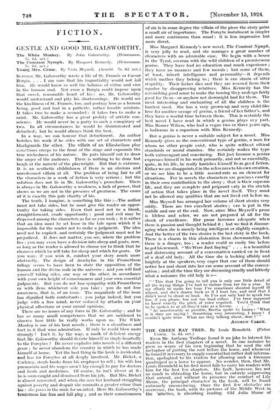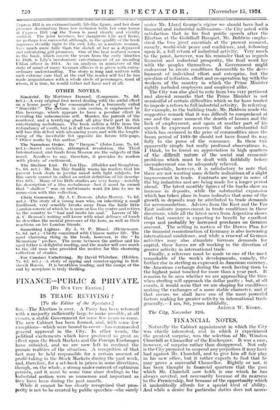THE GREEN BAY TREE. By Louis Bromfield. (Fisher Unwin. is.
6d. net.) Even Mr. Anthony Trollops found it no joke to interest his readers in the first chapters of a novel. In one instance he grew so weary of his own beginning that he used the old metaphor of putting the cart before the horse, and whenever he found it necessary to supply essential but rather dull informa- tion, apologized to his readers for allowing such a tiresome quadruped as a horse to appear. No wonder, then, that Mr. Louis Bromfield in his first novel fails to carry his readers with him for the first few chapters. His fault, however, lies not so much in obtruding the horse, but in entirely suppressing that animal, and without its presence the conduct of Lily Shane, the principal character in the book, will be found extremely unconvincing. Once the first few obstacles are overcome, the book, with its pictures of the Middle West in the 'nineties, is absorbing reading. Old Julia Shane of Cypress Hill is an extraordinarily life-like figure, and her dour presence dominating from her seclusion both her own house at Cypress Hill and the Town is most clearly and vividly realized. The joint heroines, her daughters Lily and Irene, 9re perhaps less successful, although, as the quality of the book improves steadily right to the end, Lily, as a-mature woman, lives much more fully than the sketch of her as a depraved and calculating girl promises. One of the best realized scenes in the book, which covers the years from the early 'nineties to 1920, is Lily's involuntary entertainment of an invading Uhlan officer in 1914. As an analysis in miniature of the state of mind of many German officers it is given with extra- ordinary understanding. The story is long and written with such extreme care that at the end the reader will feel he has made acquaintance with a whole circle of personages, most of whom, it is true, he would rather not have met at all.











































 Previous page
Previous page